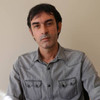What do Turkey's capital owners want?
The relationship between the government and the capital class is now at a deadlock. While the “Daddy State” maintains order, it now also manages the Central Bank and meddles with foreign currency. And though the AKP-led government is solely responsible for maintaining order, its economic fate depends on external factors.
Following Turkey’s ‘Economic Stabilization’ policies of 1980, the prestigious business association TÜSIAD had expressed its views in the magazine Görüş: “What will happen if the public administration lags behind societal development? The “Daddy State” will not be able to maintain order. The “Daddy State” will not be able to collect taxes or find the foreign currency necessary to manage the Central Bank. The “Daddy State” is unable to establish good relations on the world stage. In developed countries, when a problem is detected, the public administration is immediately bolstered. But if this were to happen here, in our country, we’d complain, and nothing would change.”
The pretention and populism of this passage are striking. The “fatherly” conception of the state in the eyes of the Turkish people is that of a state which protects, favors and serves its people. Yet over time, and especially in the past decade, this conception has shifted to that of state which the people should protect, favour and serve.
Last week, I wrote about the different viewpoints of TÜSIAD and MÜSIAD, Turkey’s two major business associations and the opportunities provided by the pandemic. While the respective approaches and methods of these organizations differ, their aims are largely the same. This presents a conundrum for the government.
Let us return to TÜSIAD and the ‘Economic Stabilization’ policies of 1980.
What happened next?
Following these policies, though the veins of the economy were opened, the state was never able to reach its goals. Turgut Özal, the then-prime minister, had recourse to populism. Still, the economic crisis and ensuing labor movements undermined the then-ruling party ANAP. Later, in 1991, the Social Democratic Populist Party (SHP) and True Path Party (DYP) coalition was compelled to achieve that same goal. Yet no later than after a year of governance, PM Süleyman Demirel bowed to the electorate and enacted a retirement law. In that sense, Demirel followed an approach which states that the “politician shouldn’t always follow economic realities” and disrupted the process.
The social conflicts that had been crushed through the 1980 coup d’Etat resurfaced in the 1990s. It was amid this dark landscape that the neoliberal order was introduced. In fact, following the 2001 economic crisis, the first thing the government overhauled was the state’s administrative apparatus. A series of laws aimed at reforming the public administration and the supreme boards were enacted, thereby finalizing the steps which had been adopted in 1980.
To simplify things a little, up until the Justice and Development Party’s (AKP) ascent to power, the Turkish government had long crushed labor rights and sought to weaken labor movements. This policy was well suited to the country’s capital owners.
Such an economic model was managed through the “autonomization” of different economic entities – except for the capital class.
Examples abound demonstrating that this environment has led to a colossal accumulation of capital. For instance, it is quite telling that the Koç Group grew more than fivefold between 2002 and 2016. Few companies did not display a similar growth pattern since the ascent to power of the AKP in 2002.
Yet beyond the economy, the situation has been pretty dire. In 2004, an amendment to the Law of Police Powers has allowed for the current police recklessness. Likewise, in 2006, an anti-terror law has allowed the government to arrest and castigate indiscriminately. It was amid this context that the AKP established its hegemony.
Those who attribute the AKP’s economic miracle with its early harmonization efforts to join the EU are misled. In fact, those “democratic integration” efforts did not last more than two years. The AKP’s later economic policies aimed at seizing the world economy’s “supply” opportunities as well as financial opportunities. It enacted those policies in a haphazard manner, with no clear plan or program. Eventually, the AKP’s economic policies demonized either the dollar or the Central Bank when international advantages shrank. That, in turn, widened the gap between populism and the needs of the market. The authoritarian state got tangled in those nets.
The relationship between the government and the capital class is now at a deadlock. While the “Daddy State” maintains order, it now also manages the Central Bank and meddles with foreign currency. And though the AKP-led government is solely responsible for maintaining order, its economic fate depends on external factors such as the state of the world economy and the EU market, which amounts to half of Turkey’s trade.
A state model that has been built through political violence, murder, massacres and crises, will not easily surrender, especially under such conditions. As long as the two pillars on which the state apparatus remain, the puzzle between the government and the capital will somehow be resolved.
Let us add here that it is noteworthy that the opposition camp – including the newly founded parties – stresses its mission to “save the state from the AKP.”

